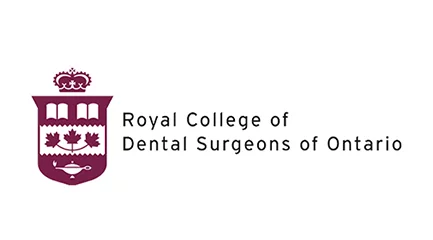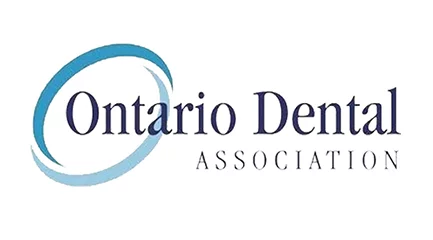PERIODONTAL (GUM) DISEASE
Periodontal, also called gum diseases, usually occur due to bacterial growth in your mouth. If gum diseases are not treated in the initial stages, they eventually lead to tooth loss or destruction of oral tissues surrounding the gums and teeth.
Various factors become a reason for periodontal diseases, including:
- Poor oral hygiene
- Habits of smoking or tobacco consumption
- Accumulation of bacteria on the tooth surface
- Stress
- Diabetes
- Crooked or gapped teeth
If you are suffering from any kind of gum disease, you need to see a doctor as soon as possible to prevent severe complications. As we know, if gum diseases are left untreated for extended periods, the infection or inflammation spreads to other oral structures, destroying their functionalities.
There are several types of periodontal diseases that are quite common these days, but by following some simple steps, you can prevent them in the first place. These steps include brushing and flossing your teeth twice a day, avoiding sugary items, or seeing your dentist after regular intervals for thorough dental examinations and in-depth oral cleanings.
Contact our office at (519) 485-4951 today, or book an appointment
SYMPTOMS OF PERIODONTAL DISEASES
There are various symptoms that indicate you might be suffering from periodontal diseases, including:
- Bleeding gums while brushing or flossing
- Bad breath
- Dislocation or misalignment of teeth
- Receding gums
- Red, swollen, tender gums
- The buildup of tartar or calculus on your teeth
- Periodic or persistent pain while chewing
- Tooth loss
- A foul taste in your mouth
- The inflammatory response throughout your body
Periodontal diseases should be controlled initially when they show mild symptoms. Otherwise, they can spread to the adjacent teeth, causing serious dental issues, which usually result in tooth or bone loss.
At Ingersoll Dental, you can experience the best dental care services at affordable costs, which are often covered by dental insurance. We are well aware of the significance of good oral health and how it can impact general health. We provide effective oral treatments to our clients according to their dental problems and help them to maintain healthy and perfect smiles throughout their lives.
If you want to eliminate any of your dental irregularities, then Ingersoll dental can prove to be the most efficacious solution for you. Contact us to get your oral issues resolved by highly professional and well-trained dentists, and also get a free consultation session at our clinic.
STAGES OF PERIODONTAL DISEASES
Gum or periodontal diseases are generally classified into four stages comprising mild to extreme symptoms. Periodontal diseases should be detected in the initial stages when they show very slight symptoms. Otherwise, they become incurable or complex to treat.
1. GINGIVITIS (INFLAMMATION)
Gingivitis is an early stage of periodontal disease. The common symptoms of gingivitis include bleeding gums while brushing and swollen, puffy, and dusky or dark-coloured gums. Gingivitis is treatable and is usually eliminated through professional dental cleanings and by practising good oral hygiene.
If you are suffering from gum inflammation or gingivitis, you should also prevent consuming sugary or starchy food items. The surgery items become a reason for plaque build-up on your tooth surface and damage their structure.
2. EARLY PERIODONTAL DISEASE
If gum inflammation is not controlled in the beginning, it eventually leads to early periodontal diseases. In this disease, your gums usually recede or pull away from teeth leaving small gaps. These gaps then harbour bacterial growth, causing serious complications.
In early periodontal disease, the patients generally experience issues like mild pain sensations while chewing food, bleeding gums while brushing or flossing, and possible bone loss.
3. MODERATE PERIODONTAL DISEASE
Moderate periodontal disease is the third stage of gum inflammation and has more probing depths. It allows the cavities and bacteria to attack bones, and sometimes, the bacteria are also released into the bloodstream, causing severe oral health complications as well. This stage of periodontal disease is also treated through deep professional dental cleanings.
The dentists also carry out a process called scaling to smoothen the surface of the tooth roots to prevent the accumulation and reattachment of bacteria in the gapped surfaces and to eliminate the risks of reinfection. However, studies show that moderate periodontal disease is not reversible but can be slowed down through appropriate treatments.
4. ADVANCED PERIODONTAL DISEASE (PERIODONTITIS)
Advanced periodontal disease is a serious infection that destroys the soft tissues surrounding the gums and teeth. As a result, the connective tissues holding your teeth start to deteriorate, leading to tooth and bone loss.
In advanced periodontitis, people normally experience symptoms like severe pain sensations while chewing, abscess, receding or bleeding gums, bad breath, and a foul taste in the mouth. The treatment of advanced periodontal disease requires dental surgery.
The main purpose of dental surgery is to thoroughly clean the pockets around the teeth to prevent bone damage. Dental surgery for periodontitis is completed in three steps: scaling, root planing, and consuming topical antibiotics.
If the advanced periodontal disease does not get proper treatment, it results in tooth loss and damages the surrounding mouth structures as well.










